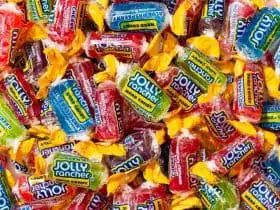In recent years, a growing understanding of the concept of veganism has emerged, encouraging experts to do more extensive research on the topic and how it branches out into different fields and practices.
Perhaps the term ‘vegan fashion’ seems a bit far-fetched, for how can a fashion item, except for cotton items, be vegan? Well, you’ll be surprised to learn that cotton, hemp, piñatax, recycled rubber, and linen are all cruelty-free, vegan materials.
That begs the following question: if we have vegan alternatives to animal-derived materials, why don’t we use the former more often?
Dear reader, the answer is that the topic of vegan fashion is a bit complicated and has several contradictions to it. We’re here to break it down so you can understand how intricate it is indeed.
The main issue with vegan fashion is that terms like vegan, sustainable, and ethical are often used interchangeably to describe fashion, while each is essentially different.
In this article, we will address the issue of the sustainability of vegan fashion, what threatens it, and whether there are solutions to such a problem.
But first, let’s discuss the notion of vegan fashion and sustainable fashion separately.
Vegan Fashion: What Makes it So?
Simply put, vegan fashion consists of the garments, accessories, and apparel made with no animal-cruelty involved. Animal-derived materials like fur, leather, and silk aren’t used, and plastic or plant-based alternatives are utilized instead.
Vegan fashion started when vegans decided that they don’t need animals to get slaughtered or endure harsh living conditions so that humans would use their material to wear fancy coats and belts.
The chief purpose of vegan fashion is to minimize direct animal killing, which leads us to discuss the notion of sustainable fashion.

Sustainable Fashion: What Makes it So?
In this section, we will analyze the concept or movement of sustainable fashion before answering the titular question. Buckle up because this is going to get serious.
Let’s start at the beginning and provide a comprehensive definition of what sustainable fashion is.
Sustainable fashion is an approach that fosters ecological integrity and social justice in the fashion industry. It doesn’t limit itself to the analysis of textiles and products, but also includes the whole system’s study with ecological and social backgrounds. Sustainable fashion concerns itself with the future of the planet and its dwellers.
The Short Answer
While vegan fashion puts animals’ well-being first, sustainable fashion places emphasis on the well-being of the planet and the ecosystem. Hence, a simple answer to the titular question of whether vegan fashion is sustainable is a clear no. However, we cannot discard the reasons why this is the case.
In-Depth Discussion
People who advocate for vegan fashion speak from a different perspective. As long as no animals are harmed in the production process, and all the materials used are animal-free, the decision is pretty easy for vegan consumers.
However, in recent years, environmental activists have pinpointed that vegan fashion causes severe damages to our planet. You’re going to replace real leather with faux leather, but chances are, this faux leather is made from PVC plastic!
> Read more: The Ultimate Guide to Vegan Leather
PVC Plastic
PVC plastic is dubbed the poisonous plastic, and rightly so. The problem with PVC is that it releases toxic substances into water, air, and soil. Additionally, it doesn’t decompose and cannot be recycled, meaning that whichever toxins it produces, they just build up and accumulate over the years.
Cotton and Water Consumption
The example of cotton is worthy of discussion here because cotton is indeed an environmentally demanding crop, and it needs great amounts of water to grow.
To elaborate, thousands of water liters are required to produce a single shirt or a pair of jeans, while many countries suffer from water shortage. The problem is made worse because the cotton industry contributes to a great share of water pollution. Sadly, chemicals used in cotton factories are later disposed of into the water.
Not to exaggerate, but imagine not having enough water, and the sources you have are either polluted or depleted. The example of the Aral Sea should teach us a lesson. Its water was used to harvest cotton, and it did yield plentiful harvests for years, but then it was depleted and turned into useless land. Should this be the case for our water resources?
> Read more: 3 Reasons Why Cotton Is Not Sustainable
Fast Fashion
The notion of fast fashion might seem off-topic here, but it’s not. Fast fashion is a consumption theory that highlights the correlation between the temporal aspects of fashion and the consumers’ tendency to shop from trendy items regularly streamed onto the market.
Since vegan fashion items are generally less durable, you need to replace them more often, which means you consume more water, plasticizers, and dyes!
However, this should not be a problem if you carefully choose more durable vegan materials. Instead of opting for PVC plastic for faux leather, consider piñatex, for instance.
If Vegan Fashion is Harmful, Why is it Still There?
Easily put, because it is much better than non-vegan fashion, but it still needs improvement to become sustainable. Is such an improvement possible? Yes. In this section, we address how vegan fashion can be made more sustainable.
First of all, let’s highlight that it’s a two-way process, involving the brands and the consumers. The more they are aware of malpractices’ negative impacts, the more we move towards a healthy fashion industry.
For brands, it should be a priority to adopt more considerate measures in the production process to make sure not to leave a negative footprint. More money should be utilized to conduct extensive research on finding sustainable alternatives and enhance other socio-environmental aspects.
For consumers, knowledge is key! Demand to know more about the products you buy. Ask about the conditions in which your favorite shirt was made. Brands care for their consumers.
The more you make your voice heard, the more likely is a change. Furthermore, before you put your money somewhere, make sure you’re not indirectly contributing to environmental damage. It might seem like a lot of work to do, but it isn’t.
One more thing both the brands and the consumers should embrace is the notion of slow fashion. The slow fashion movement simply eliminates destructive mass-production by creating objects that are aesthetically and materially seasonless. You can get a single dress and wear it for several years, but this necessitates using durable materials.
Final Words
Our sole purpose was to debunk the myth that vegan fashion is the ‘best’ alternative because the ‘best’ alternative is sustainable, eco-friendly fashion. The situation is never black or white, but the assumption that ‘vegan’ means ethical is dangerously misinformed.
Shifting towards sustainable fashion is what we should strive for. It’s not something you’re doing for yourself; you’re doing it for future generations that need to live a healthy life on Earth. A cultural change is necessary to save the planet.








![[Company Profile] Will's Vegan Shoes: The Best Products They Offer 33 Will's Vegan Shoes](https://getvegan.com/wp-content/uploads/2021/10/wills-vegan-shoes-280x210.jpg)
![Everything You Need to Know About Vegan Shoes [Ultimate Guide] 36 vegan shoes guide](https://getvegan.com/wp-content/uploads/2021/07/vegan-shoes-280x210.jpg)
![[Company Profile] 15:21: The Best Products They Offer 39 15:21 Company Profile](https://getvegan.com/wp-content/uploads/2021/07/1521-store-1-280x210.jpg)
![[Company Profile] Matt & Nat: The Best Products They Offer 42 Matt and Nat](https://getvegan.com/wp-content/uploads/2021/04/matt-nat-280x210.jpeg)
Leave a Reply